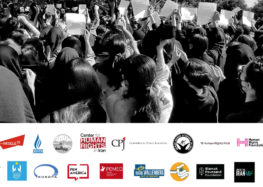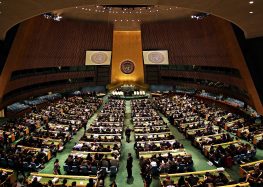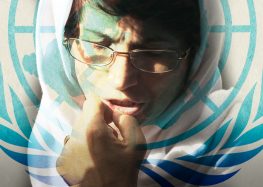With “Deep Concern” For Iran Rights Situation, Resolution Passes 78 For, 45 Against
The United Nations General Assembly passed a resolution on Tuesday expressing deep concern about widespread violations of human rights in Iran, where government officials target human rights lawyers and direct the suppression of government critics. Seventy-eight countries voted for the resolution, forty-five against, while fifty-nine countries abstained.
The draft resolution was approved on 18 November 2010 and was finalized amidst dedicated efforts from Iranian authorities who lobbied with supportive and neighboring countries and African and Latin American countries to defeat its approval. In recent months, Iran’s Human Rights Delegation led by Mohammad Javad Larijani, has held frequent meetings with diplomats from other countries to lobby against the resolution, suffering a failure after all.
“The Campaign welcomed the resolution but pointed out that it fell short of instituting a special mechanism to monitor and report on the ongoing human rights crisis in Iran and that such a mechanism is urgently needed.”
See: UN Resolution on Iran’s Human Rights Violations Approved by Huge Margin
Several international human rights groups and organizations focused on human rights in Iran engaged in coordinated, coherent efforts to provide documentation pertaining to the widespread violations of human rights in Iran to representatives of UN member states.
The draft resolution passed with 80 votes for, 44 against, and 57 abstentions. During the voting process, Larijani, who went to New York in order to lobby against the resolution, tried to stop the voting by filing a No Action Motion (NAM). But with 91 votes against and 51 in favor, the maneuver demonstrably failed.
This is the seventh consecutive year a resolution has been passed regarding the human rights situation in Iran and it reflects the attention given by the UN to Iran’s lack of commitment to observing human rights standards. It further demonstrates the willingness for cooperation among UN officials in order to confront Iran’s violations of human rights. However, in an effort to rally opposition for the plan, Larijani called it a political attack by the West, and “provocative.”
The resolution addresses the increasing number of executions, especially public executions, stoning, and hangings. Iran is one of the few countries in which individuals who commit crimes under the age of 18 could face the death penalty. The issue of violence against women is another subject addressed by the resolution.






